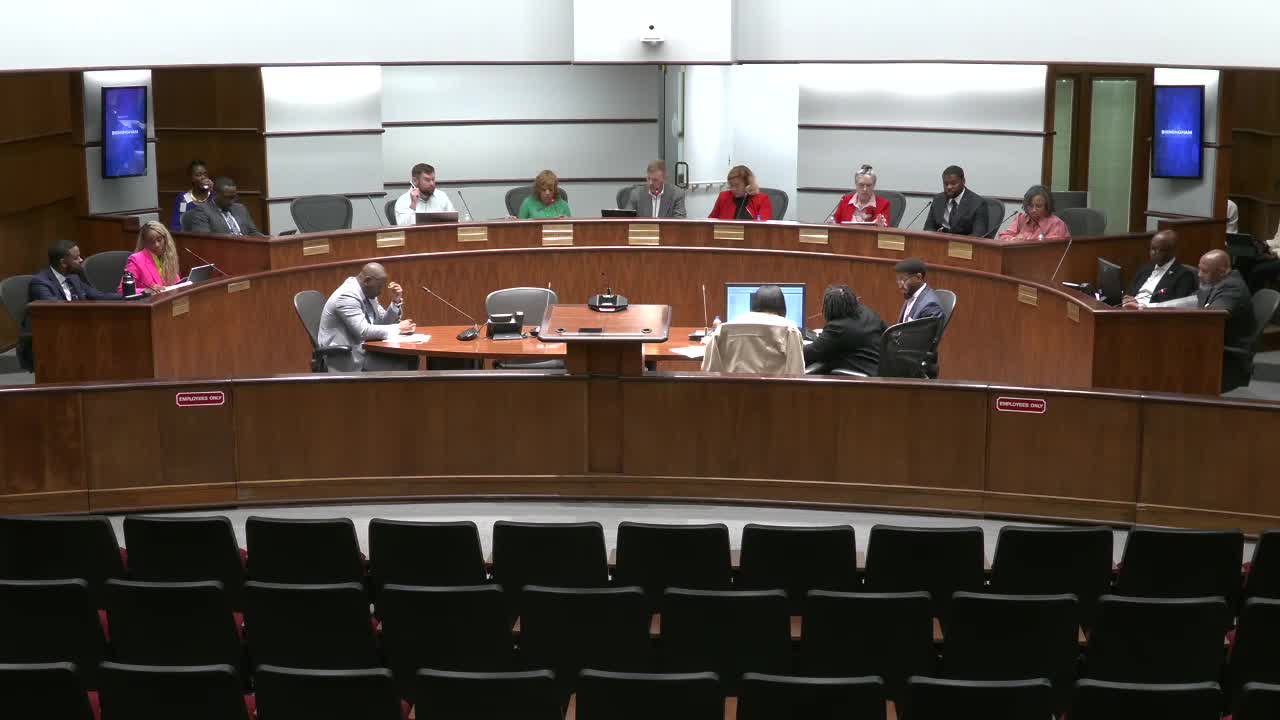Birmingham adopts new tree ordinance dubbed “Abbott’s Law” to strengthen protections and enforcement
Get AI-powered insights, summaries, and transcripts
Subscribe
Summary
The Birmingham City Council passed a rewritten tree ordinance that creates a permit process, a tree fund, clearer enforcement and a reconstituted Tree Commission; Councilor Valerie Abbott led the effort and the law was given the short title “Abbott’s Law.”
The Birmingham City Council on Oct. 21 voted unanimously to adopt a rewritten city tree ordinance that establishes a permit process for removing or planting trees on public rights of way, creates a dedicated tree fund, clarifies enforcement and reconstitutes the city’s Tree Commission.
Councilor Valerie Abbott, who sponsored the ordinance and has long pushed for stronger tree protections, said the measure provides “a good solid tree ordinance” and adds “teeth” to the city’s ability to manage street and park trees.
The ordinance moves regulatory provisions into a new chapter of the municipal code titled “Trees and Shrubs,” and retains the advisory Tree Commission as a separate board. It requires a permit for removal of healthy public trees, sets an abatement process for hazardous trees, and authorizes the city to enter agreements with adjacent property owners where narrow rights of way make planting impractical. The ordinance also codifies a replacement mechanism and a city “tree fund” that can be used for restitution, fines or to pay for replacement plantings where required.
City Attorney Julie Bernard summarized staff work on the measure, saying planning, engineering, the urban forester and the prosecutor’s office helped shape enforcement and abatement procedures. Bernard said staff created a regulatory chapter that better reflects who will carry out the ordinance — city staff — while leaving the commission’s advisory role intact.
Abbott emphasized implementation will require administrative build‑out — applications, permit forms and staffing — and encouraged neighborhood groups to watch for illegal cutting and report violations. The council reduced the commission’s required meeting frequency to twice a year and left room for technical advisory input from urban forestry and landscape staff.
The council also instructed the city attorney to add a short title to the ordinance; Councilor Crystal Clark successfully proposed the nickname “Abbott’s Law” and the clerk will reflect that short title in the code when the ordinance is codified.
The measure passed on final reading with a unanimous vote and will be incorporated into the general code under Title 6, chapter 5.
